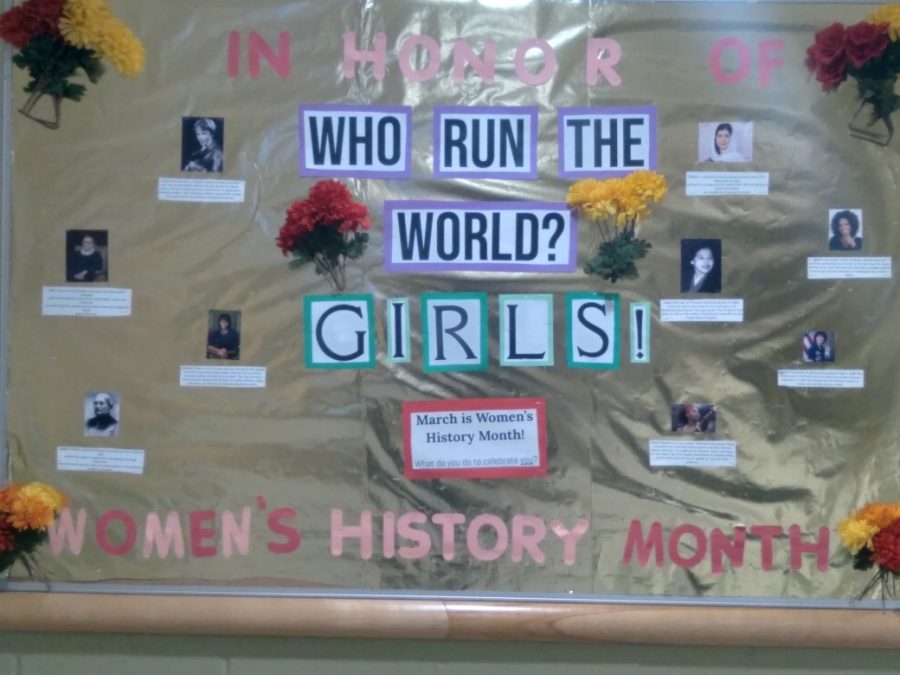International Women’s Day: Near and Far
Women’s History Month: Near and Far
By Grace Hachey
Every March, the United States celebrates Women’s History month. There is no doubt that women play an important role in the history of America; however, they may not have always been as well represented as boldly as they are now.
Historically, the retelling of our past is often focused on, and told the perspectives of men. Women’s history has often been told as separate and even secondary from men’s history. However, there may not be as much of a difference – or a difference at all – between the two.
Oakmont Regional High School Women in World teacher stated, “Since the official definition of history is: the study of past events, particularly in human affairs, and since women are human, they have played just as much of a role in history as men have.”
She said that the only difference is that women’s stories were deemed “boring or mundane” and were not recorded. Martin said, “Women across places and time have been warriors, activists, political figures, innovators etc. just like men.”
According to womenshistory.org, President Jimmy Carter declared the week of March 8th National Women’s History week in 1980. The presidential proclamation followed a number of individual celebrations of Women’s Day (March 8th) across the country.
Every year the National Women’s History Alliance decides on a theme for women’s history month, according to history.com. The theme for 2023 was “Celebrating Women Who Tell Our Stories.”
Themes of past years have been Providing Healing and Providing Hope, Valiant Women of the Vote, and Champions of Peace and Nonviolence.
However, there were many marches throughout the 20th century that celebrated women’s rights. Even before women’s history was nationally recognized, there were many U.S. citizens who strongly supported the idea.
Martin said that the only difference between the history of women and men is that women’s history was not well documented until approximately the 20th century.
“Prior to the past half century or so, most history was recorded by men, and about men. Since women were limited to the sphere of the home primarily, it was thought that there were not any interesting stories to tell about these women,” Martin stated.
“With new discoveries of primary sources,” Martin continued, “we now know these women had a lot of stories to tell, and were more involved in other “spheres” outside of the home than originally thought.”
In the present day, so many different kinds of people and their history are celebrated. Although women have not always been seen as equals or represented in history, they have had the same impact in world events – big and small.

Grace Hachey is Oakmont Class of 2025. She has been dancing since she was 4 years old, and has also done horseback riding for the past 8 years. In...








